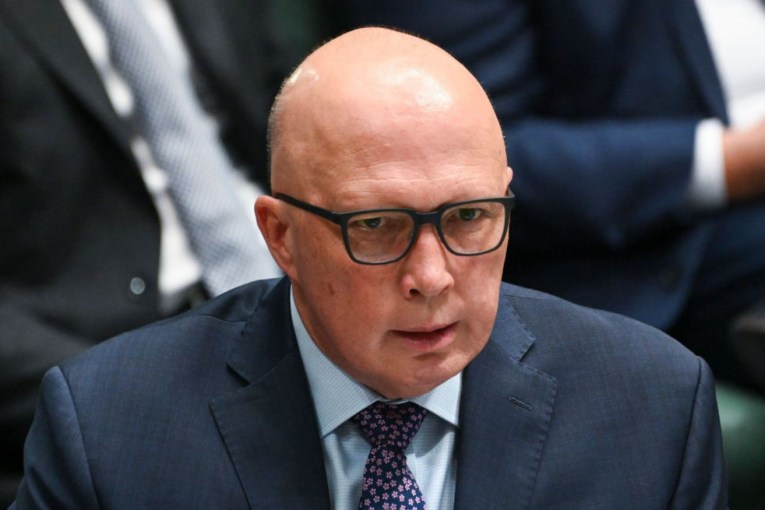As dust settles on the Voice, a new divide emerges on digital deceit

Partisan debate over the Indigenous Voice to Parliament may be cooling, but the referendum has left behind a new fault line in Australian politics over the spread of false information online.
Fresh from leading the successful No campaign, conservative political action committee Advance Australia has its sights on new draft legislation that would oblige social media platforms to tackle mis- (unintentional) and dis- (intentional) information.
“Australia has overwhelmingly rejected division,” said Matthew Sheehan, a director of Advance in an email to supporters.
“All the usual suspects are lining up – Labor, the Greens, the Teals – to call for new laws that will criminalise and police what you say. They think that if you oppose their radical vision of Australia, you’re ‘a dinosaur or a d–khead’, as Ray Martin put it.”
The proposed bill would empower the Australian Communications and Media Authority to enforce the social media industry’s own code for stopping the spread of false information.
Currently it’s left up to companies to comply with existing industry rules.
The bill would allow ACMA to investigate what a platform is doing to uphold industry-designed rules for responding to complaints about false information.
The regulator would not have the power to remove content but could impose fines of up to $2.75 million for companies that don’t uphold the rules.
Journalists exempt
Journalists would be exempt from the proposed laws.
False claims about the Voice, including claims that it was part of a Jewish or Communist conspiracy, were widely circulated, according to American cyber security researchers Recorded Future.
But the question of what role they played in the referendum result divides opinion.
Indigenous leaders released a statement on Monday describing the level of misinformation in the campaign as “unprecedented”, saying it had unleashed a “tsunami of racism”.
RedBridge pollster Kos Samaras has said claims the public were misled into voting No underestimate voters and are themselves “riddled with class prejudice”.
But the issue goes beyond the Voice.
European Union Commissioner Thierry Breton last week warned Elon Musk against violating EU regulations against “illegal content and disinformation” after wild claims about the conflict in Israel began to spread across the platform X, formerly known as Twitter.
Voters worry about lies
New research suggests online untruths concern Australians of all political persuasions.
A poll of 1547 people on the evening of the referendum by the Australia Institute found 87 per cent of Australians would like to see truth in political advertising laws.
Some 72 per cent of voters said they were worried about lies and misinformation circulating on social media, including 60 per cent of No voters.
“An overwhelming majority of voters, Yes and No, were concerned about lies,” said Richard Denniss, the executive director of the Australia Institute.
“Let’s actually look across the room and see that no matter how we voted, we’d all like our Parliament to fix this problem.”
But, when it comes to the government’s bill, views about the remedy to the problem differ.
Google has backed the government’s bill and says it has taken down more than 300,000 videos offline because they spread falsehoods.
Implementation issues
University of Sydney Emerita Professor Anne Twomey, a constitutional expert, argued it could be “virtually impossible to properly implement”.
Differences might even be emerging within Labor.
Joe De Bruyn, the former head of the Shop, Distributive and Allied Employees Association, and a leading figure in the party’s conservative wing, said in September the bill could undermine free speech.
“The ability of any citizen to express their opinions within reasonable limits has been an essential component of our democracy for many years,” he said.
Labor Senator Tim Ayres, from the left of the party, said on Monday that the campaign against the Voice had run on the steam of egregious falsehoods.
“There were elements of the No campaign that ran the most extremist set of propositions, disinformation and misinformation.”








